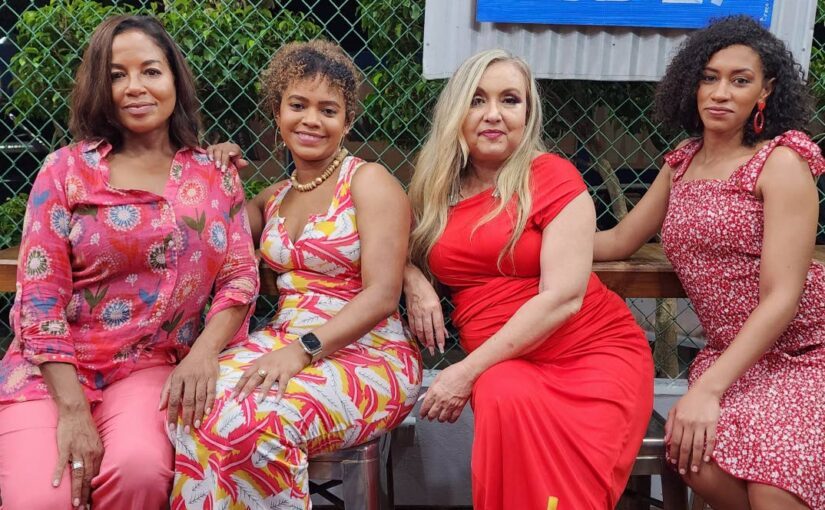Media personality and gender advocate, Josephine Oppong-Yeboah, has called for the creation of a just society where individuals in romantic...
Vous n'êtes pas connecté
- English
- Français
- عربي
- Español
- Deutsch
- Português
- русский язык
- Català
- Italiano
- Nederlands, Vlaams
- Norsk
- فارسی
- বাংলা
- اردو
- Azərbaycan dili
- Bahasa Indonesia
- Հայերեն
- Ελληνικά
- Bosanski jezik
- українська мова
- Íslenska
- Türkmen, Түркмен
- Türkçe
- Shqip
- Eesti keel
- magyar
- Қазақ тілі
- Kalaallisut ; kalaallit oqaasii
- Lietuvių kalba
- Latviešu valoda
- македонски јазик
- Монгол
- Bahasa Melayu ; بهاس ملايو
- ဗမာစာ
- Slovenščina
- тоҷикӣ ; toğikī ; تاجیکی
- ไทย
- O'zbek ; Ўзбек ; أۇزبېك
- Tiếng Việt
- ភាសាខ្មែរ
- རྫོང་ཁ
- Soomaaliga ; af Soomaali
Rubriques :
 Maroc - NEWSDAY.CO.TT - A la Une - 24/Jul 05:07
Maroc - NEWSDAY.CO.TT - A la Une - 24/Jul 05:07
Understanding why women stay in abusive relationships
Dr Gabrielle Jamela Hosein In past generations, women were not encouraged to leave violent relationships. While feminists transformed this message over the last decades and mobilised to demand improved police and social services response, there are still many reasons why women stay, or leave and return. Women return to male abusers for many reasons – economic insecurity, fear for their life or lack of support and intervention. These are external factors with which we have grown familiar, and for which there are state and NGO responses. There are also internal factors. Women victims may have challenges managing their emotional connection with their batterer and miss him when they are separated. While they may want violence to stop, they may not want the relationship to end. They may believe their batterer’s remorse or apology. The batterer may have convinced them that he is suffering as a result of their abandonment or that he is the victim who has been punished enough or is the one who is hurting most. He may have threatened to kill himself. Abusers are extremely emotionally manipulative and can make victims feel responsible for the violence, responsible for batterers’ emotions and actions, and responsible for the relationship ending or lasting. How many women ended bad relationships and were blamed for being the ones who walked away? Victims also underestimate their vulnerability to returning to violent relationships or the emotional turmoil they may experience when leaving. They may want to leave, but experience sudden decisions to return, perhaps feeling power in rescuing or reassuring an abuser who has promised to love them and care for their needs. Abuse can destroy victims’ self-esteem and belief that others will love them. Abusers often follow violence with a phase of being loving or making convincing promises that minimise the future likelihood of violence. We need to talk more about the confusing and contradictory feelings that accompany leaving abusive partners and ending relationships, including guilt and loss. Feelings of attachment to abusive relationships are not hard to understand. We continue to love abusive parents and feel sorry for hurtful family members. It takes long to leave relationships where we feel unloved, put down or unhappy. It’s important not to treat victims who return to violence as if they are different from others also struggling with toxic relationships. Our society normalises unhealthy emotional behaviour and notions of love. Beyond all this, it’s important to recognise that beliefs that condone violence in some circumstances or blame women victims continue to exist among adolescents and young people across the region. In other words, we have failed to sufficiently teach another generation of girls and boys what violence is, that violence is intolerable and is not an expression of love, why it occurs and how victims should respond. As documented in numerous studies, we simply don’t give young people the tools they need to understand emotional negotiation and power dynamics in relationships, despite the fact that they continually ask for this information. We literally never educate them about how intimate-partner violence (IPV) manifests, how it is experienced, why victims return to relationships repeatedly, and how they can protect themselves, despite the fact that relationships can become the most important part of their lives. In the 2018 Women’s Health Survey, current physical intimate partner violence, which means it had occurred within twelve months before the survey, was higher among younger women. Among 20-24 year olds, 7.2 per cent reported current IPV. Among women 25-29, one in ten reported current physical IPV (10.5 per cent). Among 15-19 year olds, one in ten reported experiencing physical and/or sexual partner violence in their lifetime (9.1 per cent). And among 20-24 year olds, such as 22-year-old Shameia Went, who was tragically killed, one in four reported experiencing physical and/or sexual partner violence in their lifetime (24.6 per cent), often by older men. As I have written about many times, in response to femicides the nation marched and called for gender-based violence (GBV) education in schools as a prevention strategy. Curriculum changes were recommended for the Health and Family Life Education programme – itself not a sole solution – to include GBV prevention content. To this day, the Ministry of Education will not roll out this curriculum. One must ask: how many more young women must die? The problem is not whether women stay in or leave abusive relationships. The problem is perpetrators of relationship violence and, too often, men who are violent to the point of femicide. Globally, victims find it difficult to leave partnerships even with extreme violence, something prevention and protection approaches need to keep in mind. The post Understanding why women stay in abusive relationships appeared first on Trinidad and Tobago Newsday.
Articles similaires
The Folly Of Criminalizing ‘Hate’ – OpEd
By Wanjiru Njoya Many people were shocked when over 1,000 protesters were arrested in the UK and jailed for various offenses including “violent...
Dangerous world for girls
Dr Gabrielle Jamela Hosein THE TRANSITION from childhood to adolescence for girls is gendered, and introduces concerns, risks and knowledge for which...
Vagina Monologues tells women’s stories
The Vagina Monologues will give the public the opportunity to hear the stories of women: some taboo, some playful, some enlightening. Proscenium...
Vagina Monologues tells women’s stories
The Vagina Monologues will give the public the opportunity to hear the stories of women: some taboo, some playful, some enlightening. Proscenium...
Trump's got a brand new woman problem
If Kamala Harris wins in November, American women will deserve a lot of the credit. Polls suggest women will vote in record margins for Kamala...
Trump's got a brand new woman problem
If Kamala Harris wins in November, American women will deserve a lot of the credit. Polls suggest women will vote in record margins for Kamala...
Biden Marks 30th Anniversary of Anti-Violence Against Women Act
As part of the 30th anniversary of the passage of the Anti-Violence Against Women Act, the White House on Thursday (12/9) announced new efforts to...
Biden Marks 30th Anniversary of Anti-Violence Against Women Act
As part of the 30th anniversary of the passage of the Anti-Violence Against Women Act, the White House on Thursday (12/9) announced new efforts to...
What Is Breadcrumbing? Essential Insights You Need
Breadcrumbing is a term used to describe a manipulative behavior in romantic or social interactions where one person leads another on with small,...
Les derniers communiqués
-
Aucun élément





